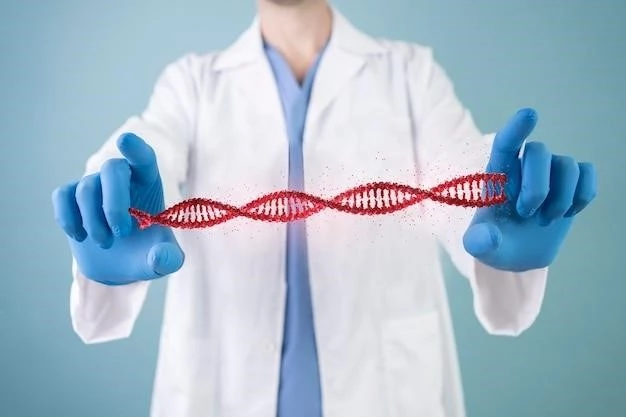Overview of Chromosome 11-14 Translocation
Chromosome 11-14 translocation is a genetic condition involving the exchange of genetic material between chromosomes 11 and 14.
Definition of Chromosome 11-14 Translocation
Chromosome 11-14 translocation refers to a genetic anomaly where a portion of chromosome 11 breaks off and attaches to chromosome 14, or vice versa. This rearrangement can lead to various health implications due to altered gene expression and disrupted genetic balance.
Incidence and Prevalence
The incidence and prevalence of Chromosome 11-14 translocation vary, with limited data available. However, it is considered a rare chromosomal abnormality that may occur sporadically or be inherited. Due to its rarity, precise statistics on its occurrence in the general population are challenging to determine accurately.
Symptoms and Diagnosis of Chromosome 11-14 Translocation
Individuals with Chromosome 11-14 translocation may exhibit variable symptoms, including developmental delays and intellectual disabilities. Diagnosis involves genetic testing to identify the translocation and assess its impact on health.
Clinical Presentation
The clinical presentation of Chromosome 11-14 translocation can vary widely among affected individuals. Common manifestations may include developmental delays, intellectual disabilities, physical abnormalities, and growth issues. Some individuals may also experience medical complications related to the translocation. A thorough clinical evaluation by healthcare professionals is essential to identify and address the specific symptoms associated with this chromosomal abnormality.
Diagnostic Methods
Diagnosing Chromosome 11-14 translocation typically involves genetic testing such as karyotyping, fluorescence in situ hybridization (FISH), or chromosomal microarray analysis. These tests help identify the specific translocation and its genetic implications. Additionally, clinical assessments, imaging studies, and consultations with geneticists may be incorporated to provide a comprehensive diagnostic evaluation.
Causes and Risk Factors of Chromosome 11-14 Translocation
Chromosome 11-14 translocation is primarily caused by errors during cell division, leading to the rearrangement of genetic material. Risk factors may include advanced parental age or a family history of chromosomal disorders.
Genetic Causes
The genetic cause of Chromosome 11-14 translocation is the result of an exchange of genetic material between chromosomes 11 and 14. This translocation can be spontaneous or inherited, with errors in meiosis or mitosis contributing to the rearrangement of genetic material. Understanding the underlying genetic causes is crucial in diagnosing and managing this chromosomal abnormality.
Risk Factors
Advanced parental age, parental chromosomal abnormalities, or a family history of chromosomal disorders are significant risk factors for Chromosome 11-14 translocation. The likelihood of this genetic condition occurring may increase in individuals with these specific risk factors, highlighting the importance of genetic counseling and informed family planning.
Treatment Options for Chromosome 11-14 Translocation
Treatment focuses on managing symptoms and providing appropriate medical interventions to address associated health issues.
Medical Interventions
Medical interventions for Chromosome 11-14 translocation aim to address specific symptoms and associated health conditions. These may include specialized care for developmental delays, intellectual disabilities, and other physical or mental health issues. Multidisciplinary healthcare teams collaborate to provide individualized treatment plans tailored to the unique needs of each affected individual;
Prognosis and Complications of Chromosome 11-14 Translocation
The prognosis and potential complications of Chromosome 11-14 translocation depend on individual health factors and the extent of genetic effects.
Prognostic Outlook
The prognostic outlook for individuals with Chromosome 11-14 translocation varies based on the severity of symptoms, response to treatment, and overall health status. Close monitoring, early interventions, and ongoing medical care can help improve outcomes and quality of life for affected individuals. Genetic counseling and support services play a critical role in addressing the prognostic challenges associated with this chromosomal abnormality.
Potential Complications
Individuals with Chromosome 11-14 translocation may face various potential complications, including developmental delays, intellectual disabilities, congenital anomalies, and increased susceptibility to certain health conditions. Regular medical monitoring and tailored interventions are essential to address these complications and enhance the overall well-being of affected individuals.
Research Advances in Chromosome 11-14 Translocation
Ongoing research aims to elucidate the underlying mechanisms of Chromosome 11-14 translocation and explore novel treatment modalities.
Current Research Studies
Current research studies on Chromosome 11-14 translocation focus on identifying potential genetic modifiers٫ investigating gene expression patterns٫ exploring therapeutic targets٫ and assessing long-term outcomes. Collaboration between researchers٫ clinicians٫ and genetic experts is crucial in advancing our understanding of this chromosomal anomaly and improving patient care.
Support and Resources for Individuals with Chromosome 11-14 Translocation
Dedicated support networks and online resources offer valuable assistance and information for individuals affected by this genetic condition.
Support Networks
Support networks play a vital role in connecting individuals, families, and caregivers affected by Chromosome 11-14 translocation. These networks provide emotional support, shared experiences, and access to resources, fostering a sense of community and understanding. Participation in support groups can offer valuable insights and solidarity in navigating the challenges associated with this genetic condition.
Online Resources
Online resources offer valuable information, educational materials, and support services for individuals and families impacted by Chromosome 11-14 translocation. Websites, forums, and reputable organizations provide up-to-date insights, treatment options, and community forums to facilitate learning, emotional support, and access to expert guidance regarding this genetic disorder.

Genetic Counseling for Chromosome 11-14 Translocation
Expert genetic counseling services offer tailored guidance and support for individuals and families affected by this genetic condition.
Counseling Services
Specialized genetic counseling services offer comprehensive assistance in understanding, managing, and planning for the implications of Chromosome 11-14 translocation. These services involve personalized risk assessment, informed decision-making, and emotional support to empower individuals and families in navigating the complexities of this genetic anomaly.
